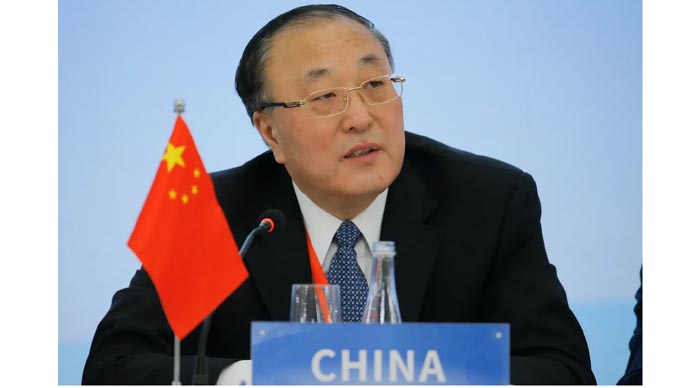UNITED NATIONS, Oct 23 (DNA): A Chinese minister has brushed aside
Indian concerns over the China Pakistan Economic Corridor (CPEC), saying
it is an economic cooperation project, not related to any third party.
“It (CPEC) is not related to their (Indian) sovereignty and territorial
integrity,” Dai Dongchang, China’s Minister of Transport, said in
response to the objections voiced by an Indian delegate at the virtual
briefing on Biodiversity Conservation and Sustainable Transport for
Global Development.
The Indian delegate, Sneha Dubey, said they cannot accept the inclusion
of CPEC, the Belt and Road Initiative’s flagship project, claiming that
it passes through India’s territory.
The BRI, a multi-billion-dollar initiative launched by Chinese President
Xi Jinping in 2013, is aimed at ushering in a new era of trade and
growth for economies in Asia and beyond.
The $60 billion CPEC, which connects Gwadar Port with China’s Xinjiang
province, is the flagship project of the BRI.
In his introductory remarks China’s UN Ambassador, Zhang Jun, said
President Xi, who attended the leaders’ summit of COP15 (conference of
parties) and the opening ceremony of the sustainable transport
conference in Kunming, China, had called for putting development on top
of global agenda.
Pakistan’s Ambassador to the UN, Munir Akram, highlighted Pakistan’s
collaboration with China, saying that the CPEC was one of the largest
rail and road connectivity projects in the world.
“We’ll be opening the Gwadar Port, and its use for transit trade with
Central Asia and China,” he said, adding CPEC would lead to the progress
and prosperity of the entire region.
“We are heartened by the possibility of restoration of peace in
Afghanistan, which will increase the level of connectivity of these
adjacent regions of Asia,” the Pakistani envoy said.
The development of ecological civilization, proposed by the Chinese
president, could guide the international community on a path to
sustainable development, he said.
Ambassador Akram urged all developed countries to follow the footprints
of China, to ensure predictable adequate and concessional finances for
developing countries to meet climate goals and the biodiversity targets.
Enumerating Pakistan’s contribution to global biodiversity, Ambassador
Akram said that its 10 billion trees tsunami is the largest
reforestation project in the country’s history.
Pakistan has also embarked upon various infrastructure development
programmes to enhance regional connectivity, improve the efficiency of
transport and trade and logistics.
“Our vision is to provide safe, reliable, affordable, and modern means
of communications, which effectively supports the economy, and acts as a
catalyst for the socio-economic growth of the country,” he said.
Pakistan, he said, is committed to the UN agenda for Road Safety, which
was approved in 2018, saying it would save many lives.
Other speakers, including UN Under Secretary-General, LIU Zhenmin, CBD
Executive Secretary, Elizabeth Mrema, and Chinese ministers, including
Zhao Yingmin, Minister of Ecology and Environment, and Dai Dongchang,
Transport Minister.
Friday’s event was co-hosted by the Permanent Mission of China, UN
Department of Economic and Social Affairs, and Conservation of
Biological Diversity (CBD) Secretariat.
====












